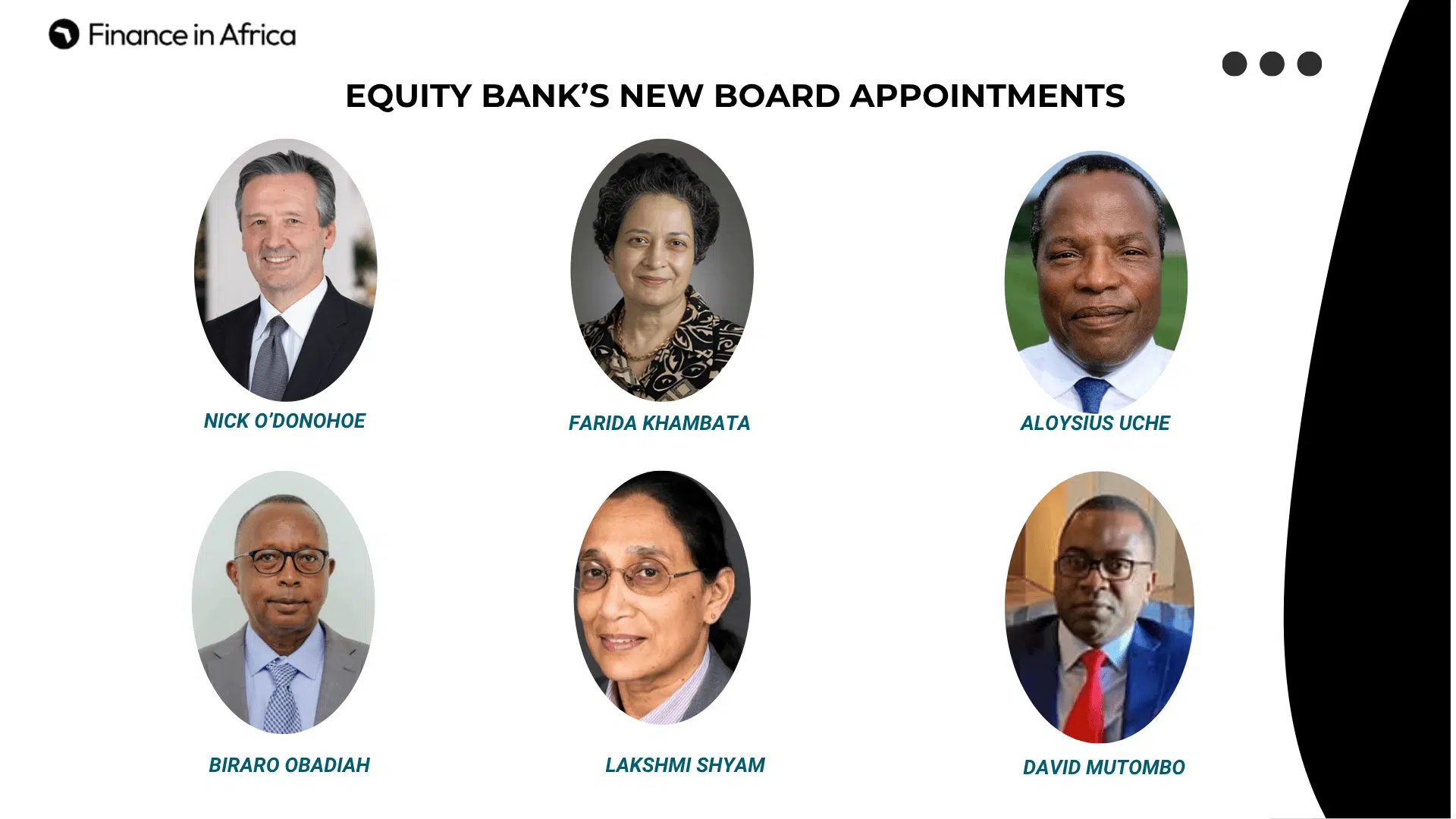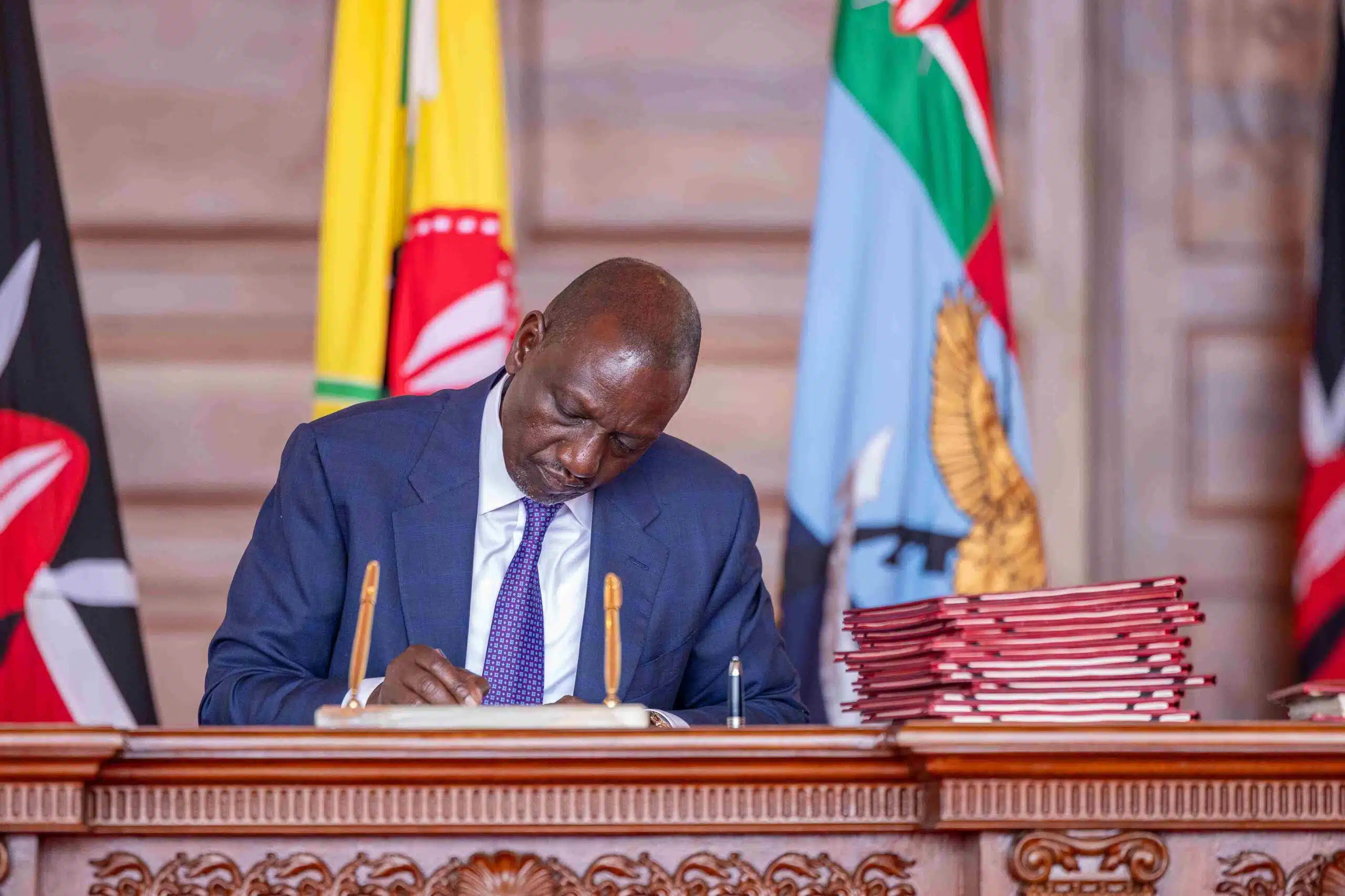Research consistently shows that organisations with more women in leadership achieve better decision-making, greater innovation, and improved financial performance.
Despite this compelling evidence, women remain underrepresented in top leadership roles globally. The Equileap Global Report 2023 revealed that women occupy just 6% of CEO positions and 28% of board seats worldwide. In the financial sector, women hold only 23% of executive roles, underscoring a persistent gender gap in senior positions.
Across many African countries, this disparity is similarly pronounced. A 2024 PwC report indicated that women constitute only 29.4% of board members and 26.9% of management roles in surveyed Ghanaian banks. While progress has been made, leadership in the sector remains overwhelmingly male-dominated.
However, a growing number of African women are breaking through the glass ceiling, achieving remarkable milestones in the banking industry.
These leaders—spanning central banks, commercial banking, and financial regulation—have guided institutions through economic turbulence, strengthened governance structures, and enhanced financial stability in their respective markets.
Under their leadership, banks have maintained resilient balance sheets, expanded profitability, and pioneered financial solutions that drive inclusion and innovation.
As we mark International Women’s Day, it is vital to recognise the influence of these leaders—not just in achieving representation but in shaping the future of banking and finance in Africa.
Southern Africa
Fundi Tshazibana – Deputy Governor, South African Reserve Bank
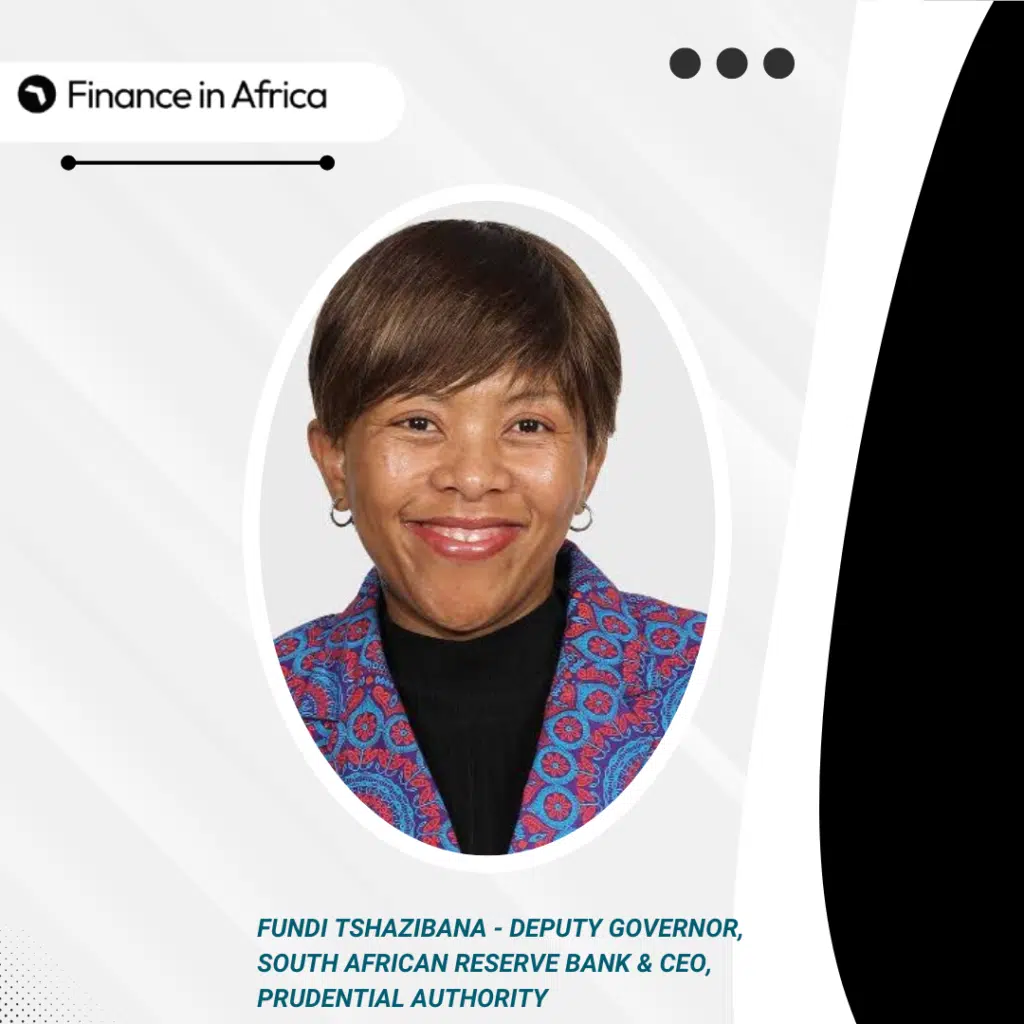
Fundi Tshazibana is the first black woman Deputy Governor of the South African Reserve Bank (SARB) and CEO of its Prudential Authority, which regulates banks, insurers, and financial conglomerates. She also sits on the Monetary Policy Committee (MPC), the first woman to do so since 2014.
Before her appointment in 2019, Tshazibana was an adviser to the SARB Governor, an Alternate Executive Director at the IMF, and a senior official at South Africa’s National Treasury.
She assumed her role during a period of slow growth, rising inflation, and a weakening rand. Under her leadership, the SARB’s interest rate hikes—starting in November 2021—helped moderate inflation, which peaked at 7.8% in mid-2022. Her work has been pivotal in reinforcing South Africa’s financial stability.
Nangula Kauluma – CEO, FNB Retail Banking, Namibia
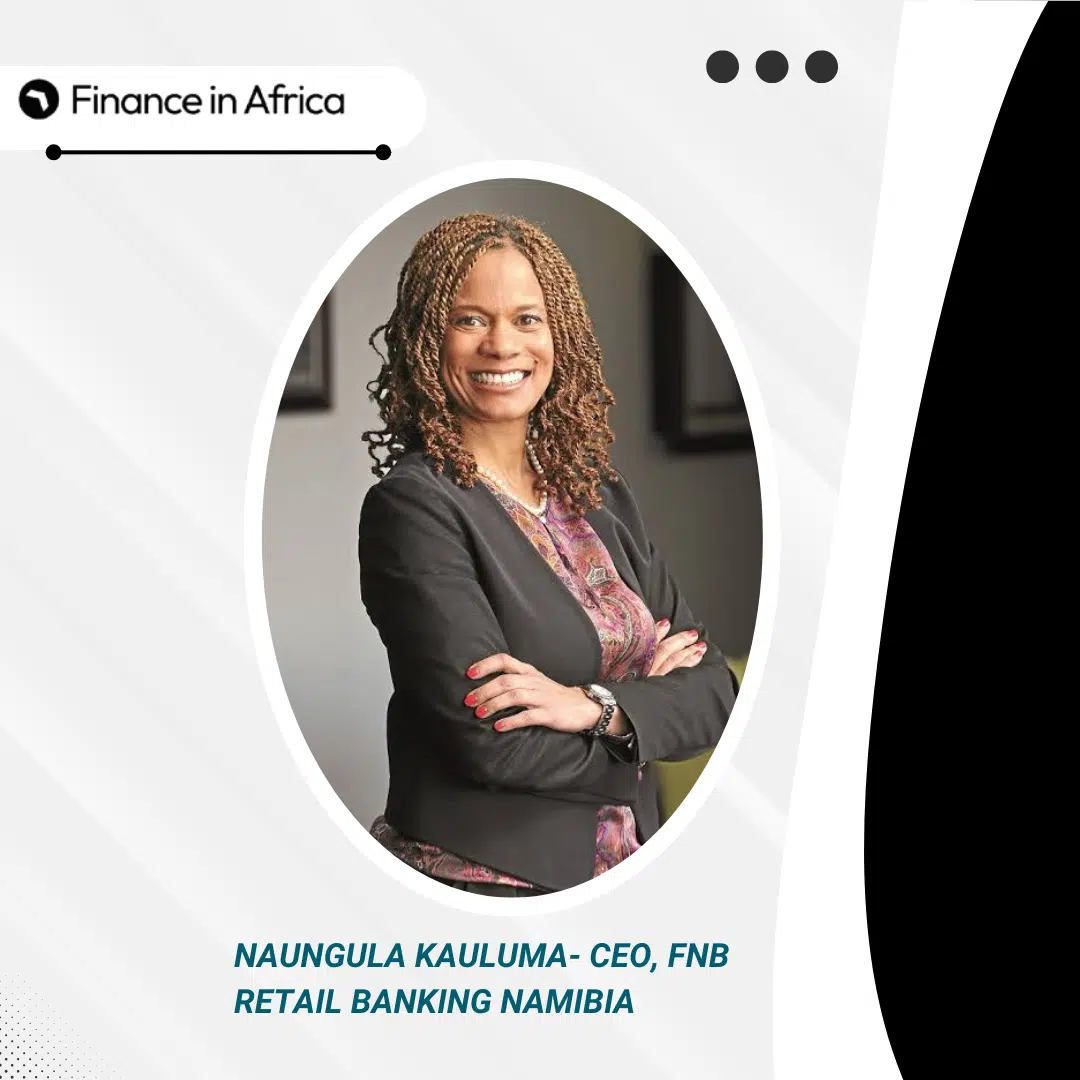
Nangula Kauluma was appointed CEO of FNB Retail Banking – a subsidiary of one of Namibia’s foremost financial institutions, FirstRand bank, on 26 January 2024, marking a significant milestone in the bank’s evolution. With nearly two decades of financial services experience – including roles as Director of Premium Banking and CEO of OUTsurance Namibia (now FNB Insurance) and earlier positions at Old Mutual Namibia – Kauluma brings valuable expertise to the role.
As CEO, she leads one of FNB’s two major divisions alongside her counterpart, Sepo Haihambo, CEO of FNB Commercial Banking. Together, they have contributed to the bank’s strong performance.
In H1 2024, FNB recorded a 7.1% increase in profit before tax, with net interest income rising 16.5%, non-interest income up 10.9%, advances increasing by 5.3%, and deposits growing 15.7%. These results underscore the effectiveness of their strategic leadership, solidifying FNB’s position for continued success.
Betty Murambadoro – Executive Director, Stanbic Bank, Zimbabwe
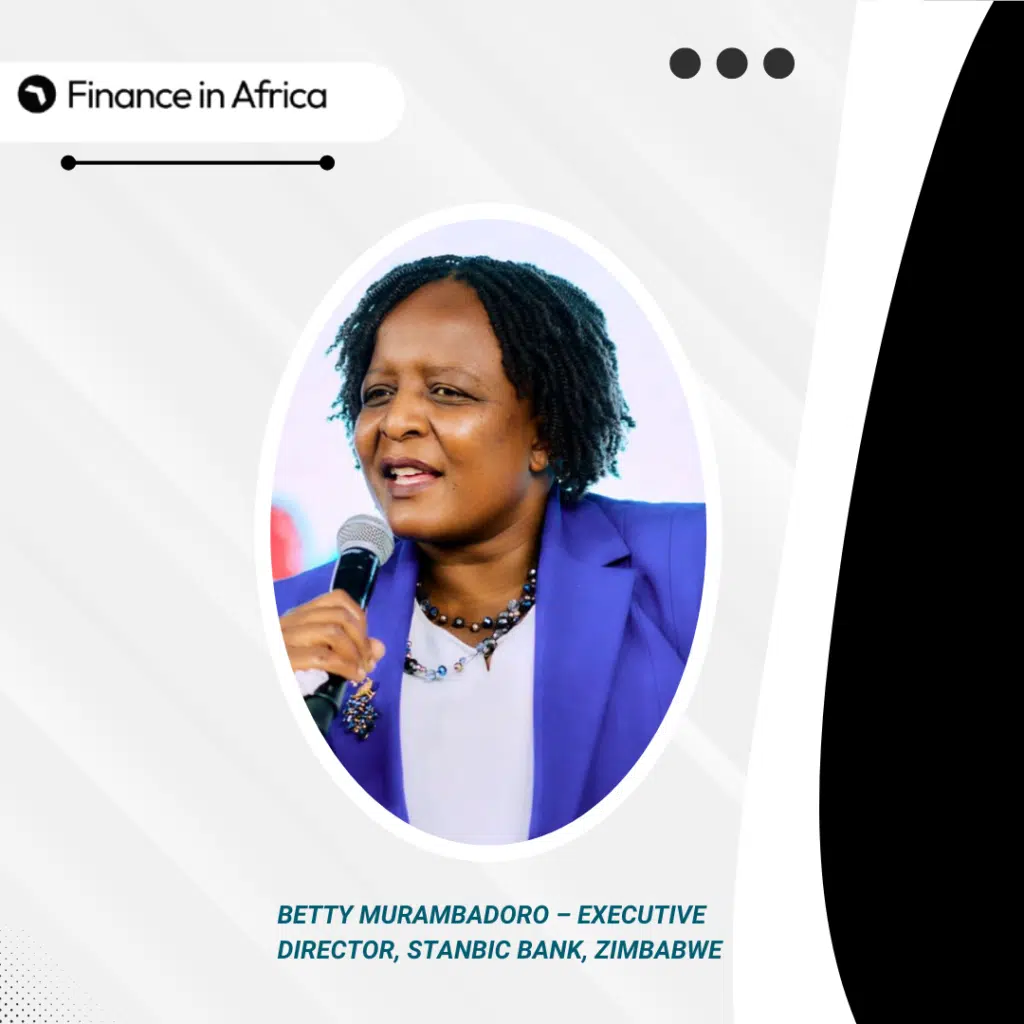
Since joining Standard Bank in 2019, Betty Murambadoro has held pivotal roles, including Head of Corporate and Investment Banking at Standard Bank Swaziland, Head of Investment Banking, Deputy Head of Corporate & Investment Banking, and Head of Client Coverage.
In 2020, she was appointed Executive Director of Corporate and Investment Banking at Stanbic Bank Zimbabwe.
With Murambadoro at the helm, the bank achieved a historical cost profit of ZWG27.1 million ($1.02 million) for the six months ending June 30, 2024, amid policy changes of the country’s functional currency.
The bank has also deepened its investments in key sectors of Zimbabwe’s economy, particularly mining and agriculture, by offering tailored financing solutions to mid-tier mining companies, their suppliers, and small businesses.
On March 4, 2025, the bank secured a €20 million ($21.7 million) credit line to provide cheaper loans to small and medium-sized businesses as part of its efforts to encourage economic inclusion.
Western Africa
Adaora Umeoji – Managing Director, Zenith Bank, Nigeria

Adaora Umeoji became Managing Director of Zenith Bank in 2024, making her first woman to hold that position in the bank’s history. Having joined Zenith Bank in 1995, she steadily climbed the ranks, serving as Deputy Managing Director from 2016 to 2024.
Under her leadership, Zenith Bank achieved impressive financial results. In H1 2024, gross earnings surged 117% year-on-year to ₦2.1 trillion ($1.3 billion), while profit before tax rose 108% to ₦727 billion ($482.86 million). The bank also expanded its international footprint, launching operations in Paris in 2024.
Beyond financial success, Umeoji is driving innovation and inclusion, ensuring Zenith Bank remains a leader in Africa’s banking sector.
Bolaji Agbede – Acting Group CEO, Access Holdings

Following the sudden passing of Herbert Wigwe—Access Holdings’ pioneering CEO and a key figure in Nigeria’s banking sector—in February 2024, Bolaji Agbede was appointed Acting Group CEO, guiding the institution through a crucial transition period.
Despite uncertainty, Agbede led Access Bank—Nigeria’s largest bank by assets—to become the first to meet Nigeria’s ₦500 billion ($332.3 million) minimum capital requirement, raising ₦351 billion ($231.1 million) via a rights issue—well ahead of the 2026 deadline. Additionally, under her leadership, gross revenue surged 133.5% to ₦2.2 trillion ($1.4 billion) in H1 2024.
A 27-year veteran in banking and business consulting, Agbede was a founding executive director of Access Holdings. Her appointment places her among a growing number of female banking leaders in Nigeria.
Felicia Boamah – CEO, Mponua Rural Bank, Ghana

Felicia Boamah is one of only eight female CEOs among 147 rural bank CEOs in Ghana, making her a rare leader in the sector. Since 2017, she has transformed Mponua Rural Bank into one of Ghana’s top-performing rural banks.
In 2023, the bank achieved a profit before tax of GHS 7.1 million ($457,983) the highest in its history and the top performer in Ghana’s eastern region. Boamah has distinguished herself by delivering higher returns with fewer resources, demonstrating exceptional leadership efficiency.
The ARB Apex Bank’s Efficiency Monitoring Unit has consistently rated Mponua Rural Bank as strong under her tenure. With 33 years in banking, her rise to CEO is a testament to resilience, strategy, and leadership excellence.
Northern Africa
May Abulnaga – First Sub-Governor, Central Bank of Egypt
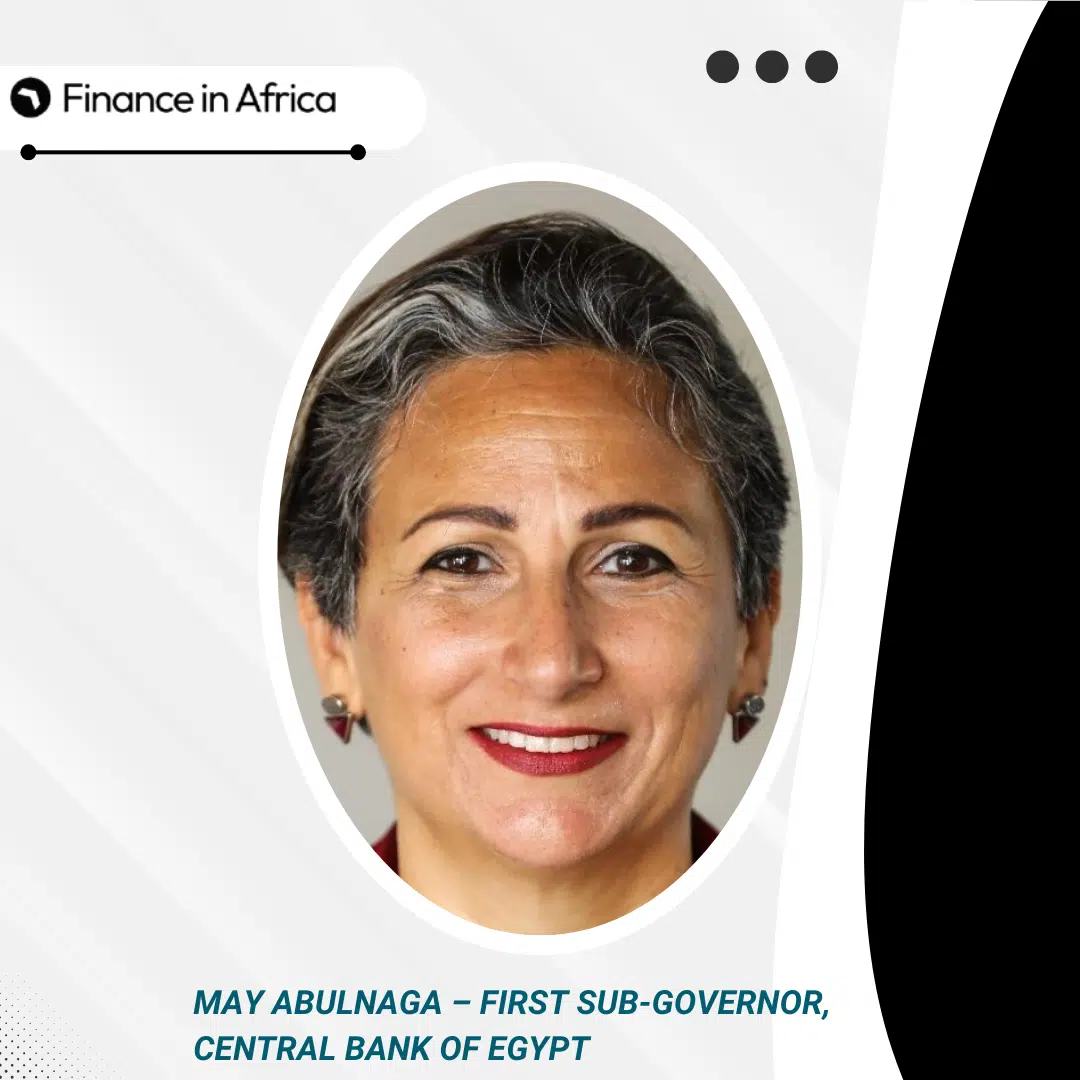
Like other women on this list, May Abulnaga was the first to hold her current position. As First Sub-Governor of the Central Bank of Egypt (CBE), she has been instrumental in reshaping banking regulations to align with global financial standards.
She founded CBE’s Regulations Department in 2007, introducing structured regulatory processes that improved governance, risk management, and financial stability. Her work strengthened internal controls in Egypt’s banking sector, increasing investor confidence and resilience.
Abulnaga is also a key figure in financial inclusion, particularly for women. She helped digitise Village Savings and Loans Associations (VSLA) – local financing initiative, expanding a pilot programme from 100 women to 250,000 participants. With 28 years of experience in banking and credit risk, she continues to lead initiatives that drive economic growth and financial accessibility.
Nezha Hayat – Chairperson, Moroccan Capital Market Authority (AMMC)
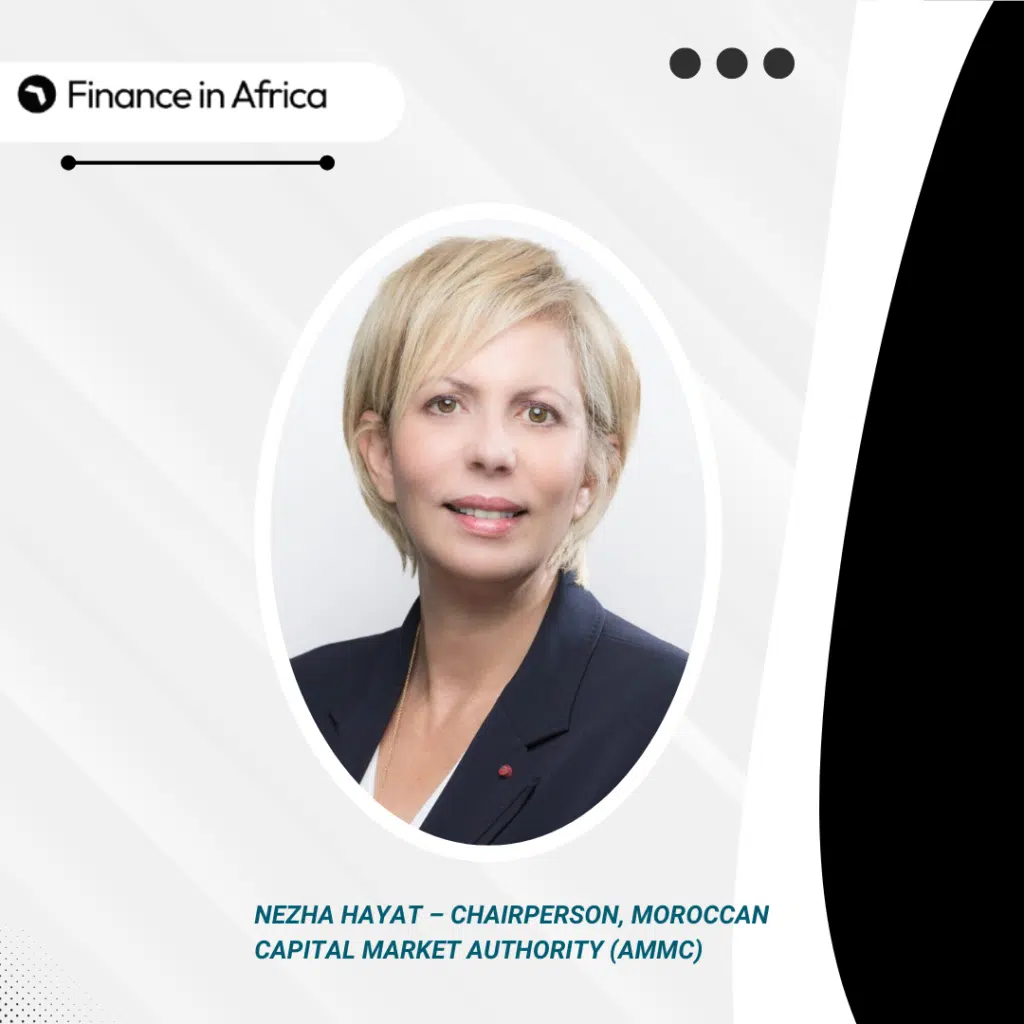
Nezha Hayat has led the Moroccan Capital Market Authority (AMMC) since its establishment in 2016, overseeing regulatory frameworks that have strengthened Morocco’s financial markets and improved investor confidence.
Before her appointment, she spearheaded brokerage and asset management operations at Société Générale Marocaine de Banques and served two terms as President of the Association of Stockbrokers in Morocco. In 2007, she became the first woman to join the management board of a Moroccan bank (Sogelease).
Her tenure as the authority’s CEO has seen Morocco’s capital markets expand significantly. In 2023, financial operations increased by 36% to MAD 87.3 billion ($897.2 million), while collective investment schemes grew by 11.8% to MAD 600 billion. Stock market capitalization stood at MAD 626 billion ($64.3 billion). Hayat has also been at the forefront of sustainable finance and financial literacy, ensuring broader market participation. AMMC’s supervision continues to modernize Morocco’s financial sector, enhancing transparency, resilience, and accessibility.
Nadia Gamha – Deputy Governor, Central Bank of Tunisia
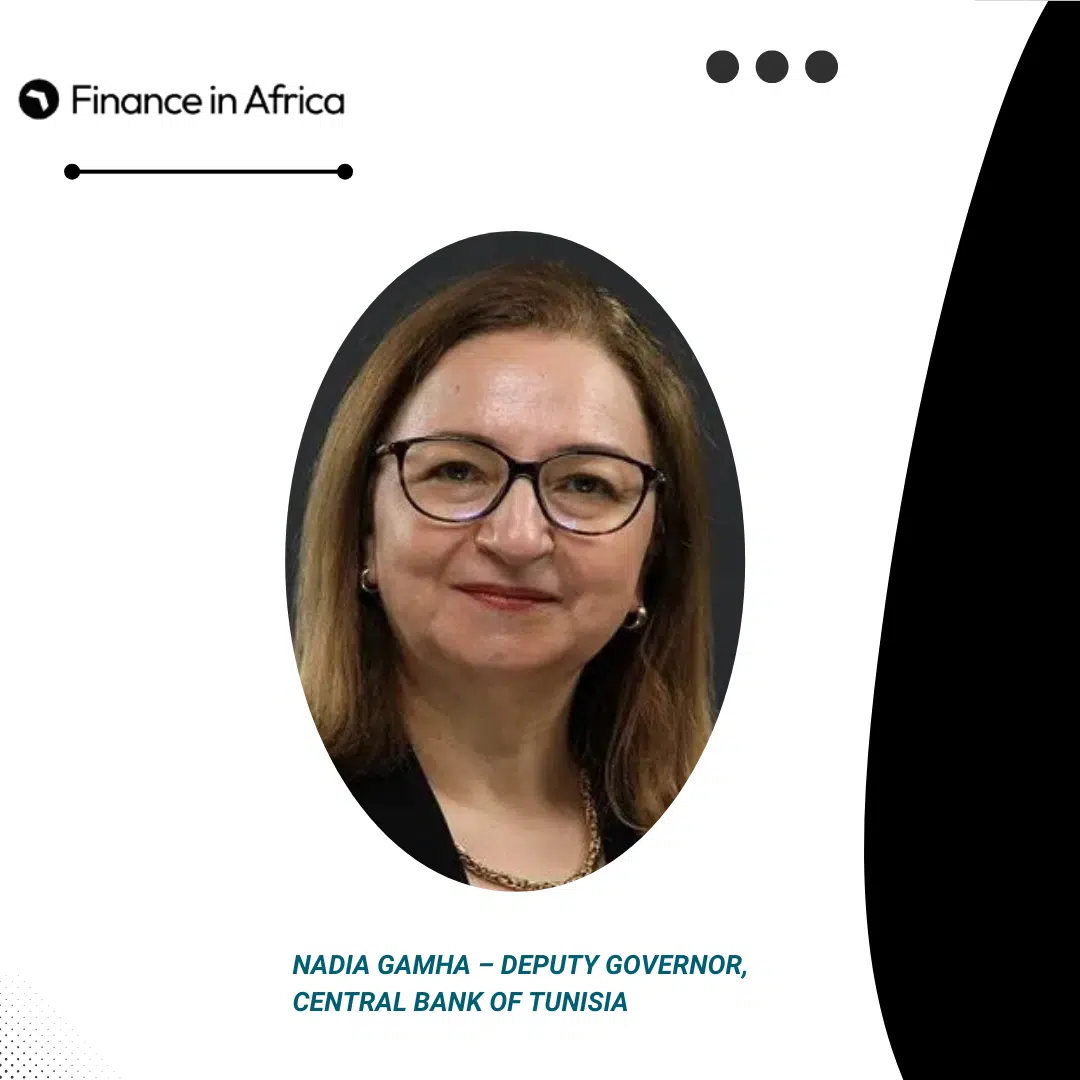
With 36 years of experience in Tunisia’s banking sector, Nadia Gamha has played a key role in modernizing the country’s financial landscape. She steadily rose through the ranks at the CBT, leading the banking supervision department for seven years and serving as Chief of Staff to three successive governors before making history in 2018 as the first woman appointed Deputy Governor in Tunisia and the Arab world.
In her current role, Gamha oversees the implementation of CBT’s strategic plan, spearheading financial inclusion reforms. Under her guidance, the central bank has enhanced gender equality in banking regulation, mandating gender diversity on financial institution boards.
She also championed the launch of a regulatory sandbox, enabling fintech startups to develop remote onboarding solutions, expanding financial access for youth. A firm advocate for digital transformation, Gamha continues to shape Tunisia’s financial sector through innovation and policy reforms.
Eastern Africa
Mary Mulili – CEO/MD, UBA Kenya
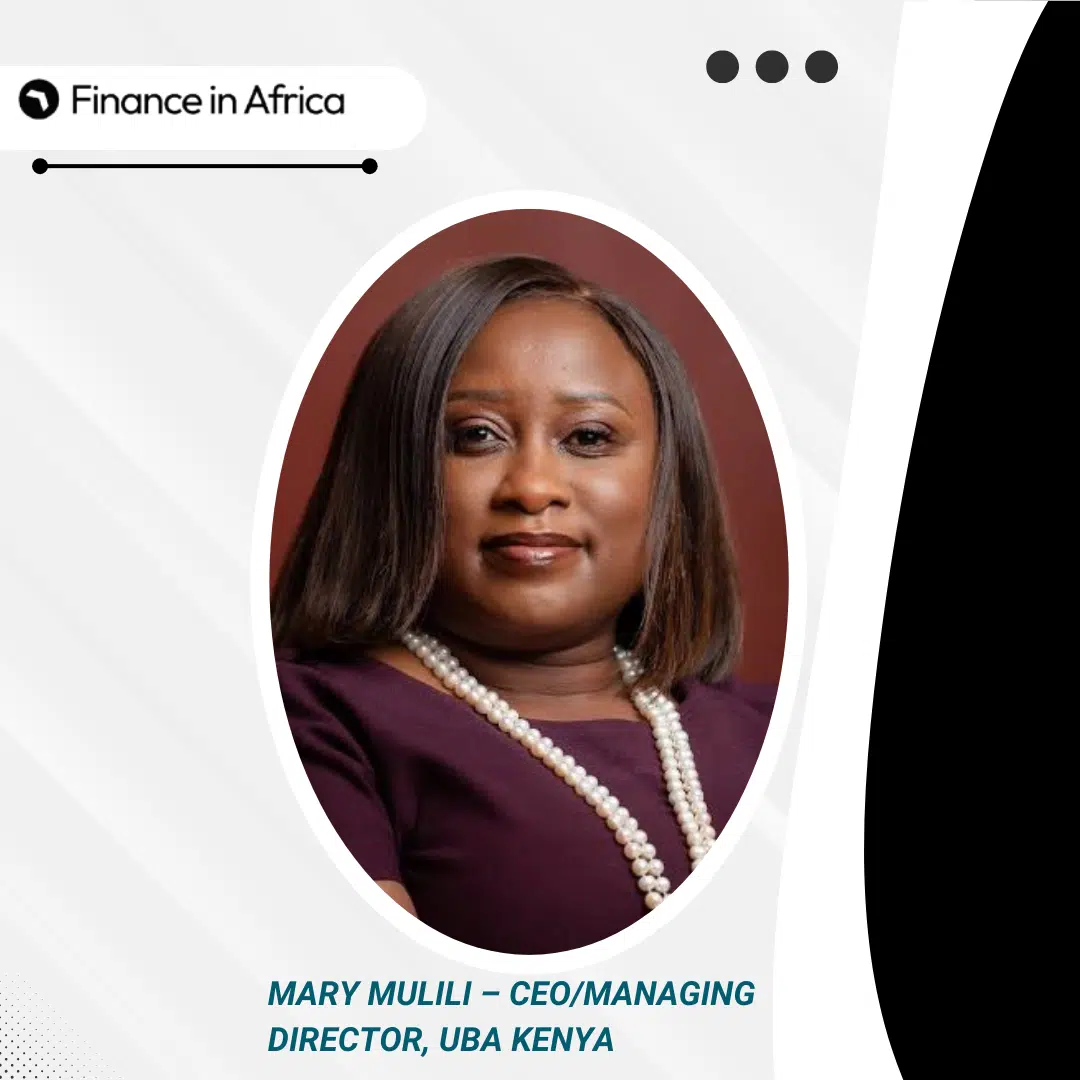
Mary Mulili became UBA Kenya’s first female CEO in January 2024, a significant milestone in the bank’s 15-year history. Since taking the helm, she has focused on expanding financial access and strengthening support for small and medium-sized enterprises (SMEs).
With her guidance, UBA Kenya introduced Braille account opening services, making banking more accessible for visually impaired individuals. This initiative, along with the bank’s AI-powered digital banking platform, Leo Chat, earned UBA Kenya the Excellence in Financial Inclusion Award at the 2024 Africa Fintech Forum.
Mulili has also prioritised SME financing, securing a $282 million loan from UBA Plc as part of a broader $6 billion AfCFTA SME funding initiative, ensuring small businesses have greater access to capital.
Diane Karusisi – CEO, Bank of Kigali Group, Rwanda

As CEO of Bank of Kigali Group (BK Group), Diane Karusisi has transformed Rwanda’s largest commercial bank into a digital-first financial powerhouse. A seasoned economist and statistician, she previously served as Chief Economist and Head of Strategy at the Office of the President of Rwanda, shaping national policies on economic growth and financial inclusion.
Since taking the helm at BK Group in 2016, Karusisi has spearheaded digital banking innovations, ensuring millions of Rwandans can access financial services through mobile platforms.
With her leadership, the bank has expanded beyond traditional banking into General Insurance, Investment Banking, and Technology, strengthening its position as a diversified financial institution
Sarah Arapta – CEO, Citibank Uganda
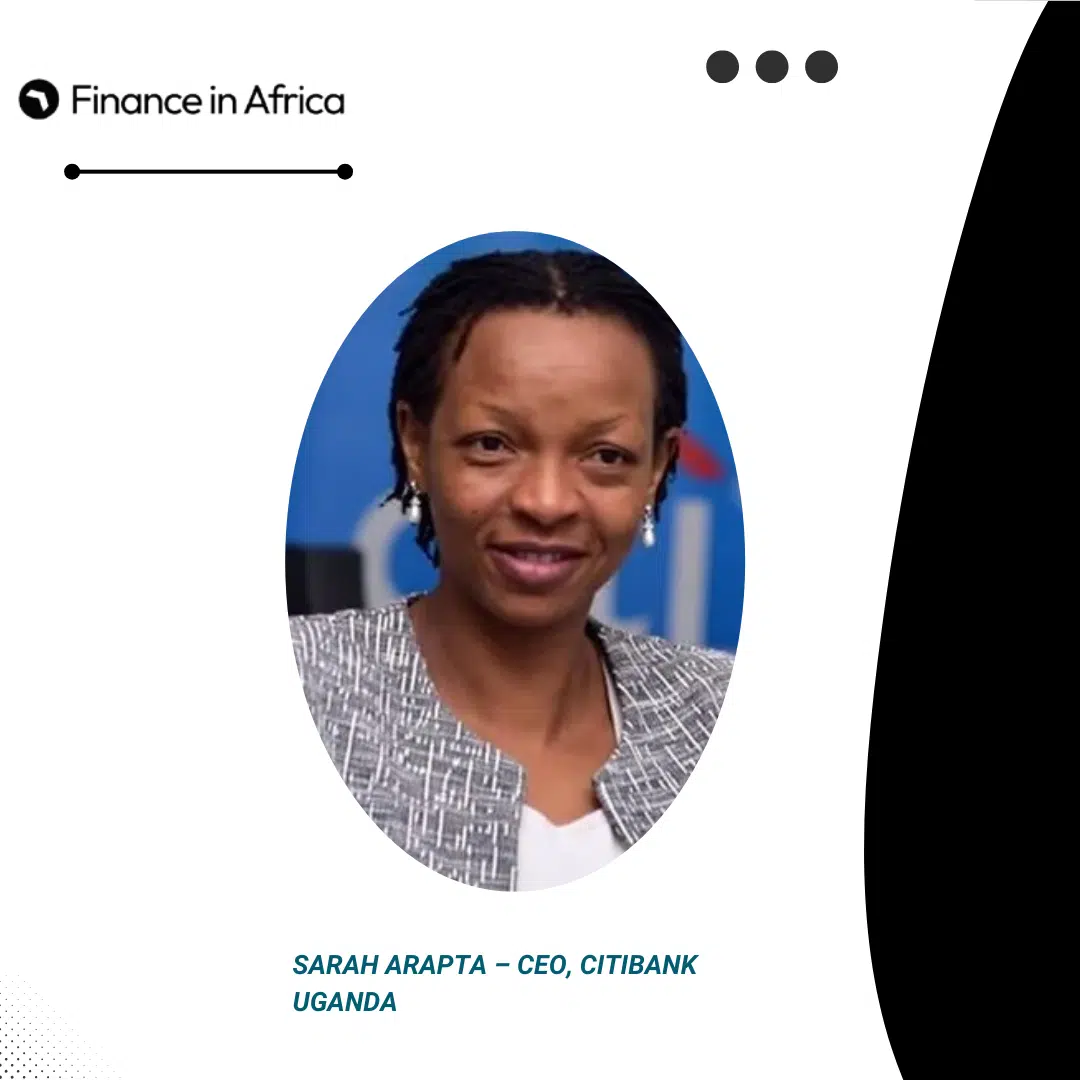
Since 2016, Sarah Arapta has led Citibank Uganda, overseeing its expansion from UGX 951.1 billion ($259.3 million) in assets to UGX 1.409 trillion ($384.2 million) by 2022. Her management has also solidified the bank’s position as a key player in Uganda’s financial sector, ranking as the 10th largest bank in 2024 with a 2.79% market share.
A seasoned banker, Arapta previously held senior roles at Stanbic Bank Uganda and Barclays Bank Uganda, leading corporate and investment banking divisions. Her influence extends beyond Citibank—in 2022, she became the first female chairperson of the Uganda Bankers’ Association, marking a significant milestone in the country’s banking leadership.
Central Africa
Amie Sow – Regional CEO, Central Africa, UBA Group
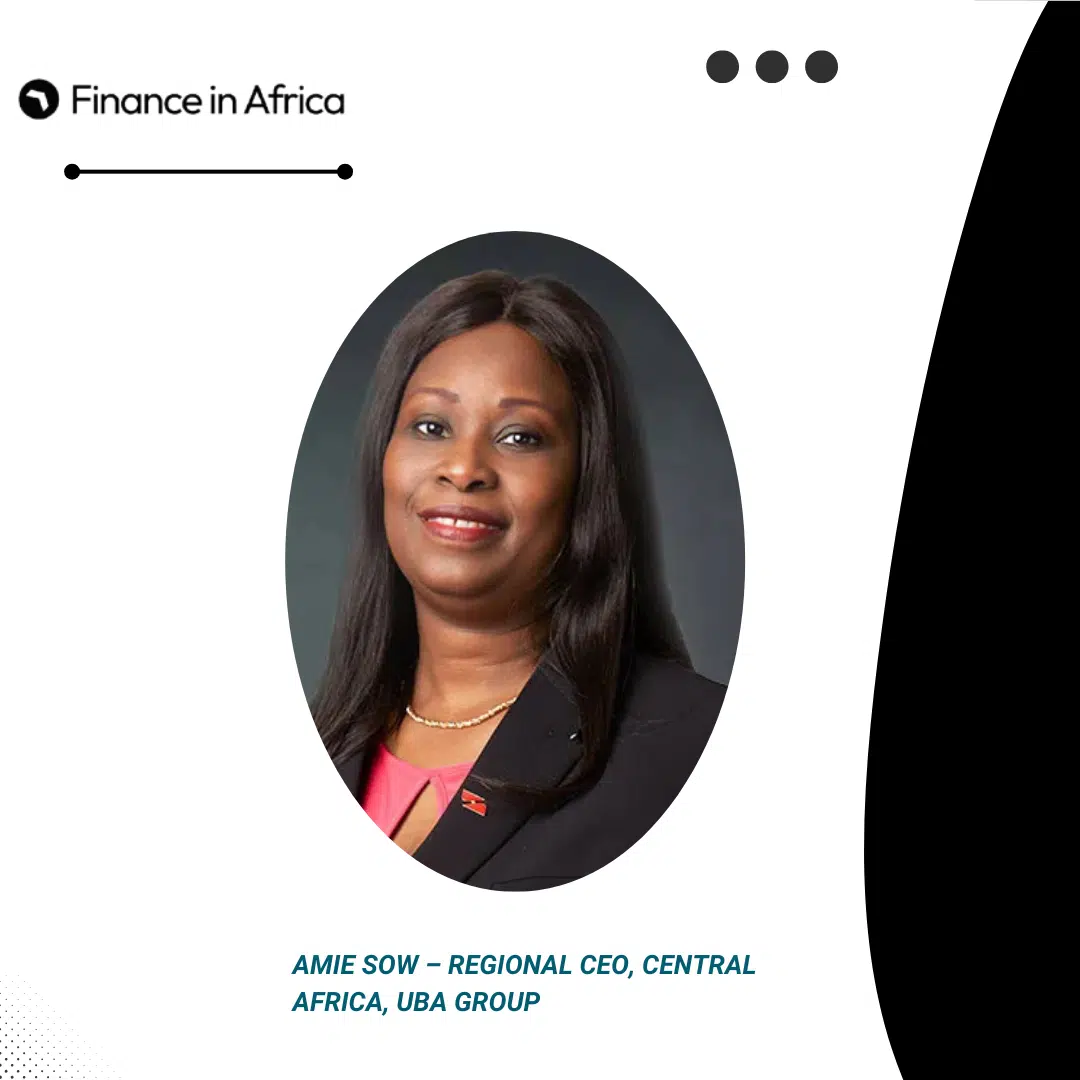
With over two decades of banking experience, Amie Sow has built a distinguished career in business development, risk management, and executive leadership. Since 2021, she has served as Regional CEO for Central Africa at UBA Group, overseeing subsidiaries in Cameroon, Chad, Congo Brazzaville, the Democratic Republic of Congo, and Gabon.
Before assuming this role, Sow was Managing Director/CEO of UBA Senegal, where she led the bank to win Bank of the Year from The Banker (Financial Times) for six consecutive years. She is widely recognized for her expertise in corporate banking, structured finance, and SME lending, particularly across the Central African Economic and Monetary Community (CEMAC) region.
Marguerite Atanga – Managing Director, CCA Bank, Cameroon

Since her appointment in 2022, Marguerite Fonkwen Atanga has led CCA Bank, steering its transformation from a former microfinance institution into a competitive commercial bank.
Under her leadership, the bank has experienced significant financial growth—by 2023, deposits increased by 26.03% to 518.5 billion FCFA ($856.2 million), while gross transactional revenues rose by 27.1% to 647.03 billion ($1.07 billion) FCFA. The bank also expanded its lending portfolio, with loans growing by 24.8% to 286.3 billion FCFA ($472.8 million), and net profits climbing by 18% to 14.1 billion FCFA ($23.2 million).
Atanga, formerly Deputy Executive Director at UBA Cameroon, has prioritized digital banking innovations, ensuring CCA Bank’s services are accessible both locally and internationally
Eugenia Onyekwelu – Managing Director, UBA Gabon

One of the few female banking executives in central Africa, Nigerian-born Eugenia Onyekwelu has over 20 years of experience in banking operations and expansion strategy. Before becoming managing director of UBA Gabon in 2020, she served as the bank’s chief operating officer, where she played a pivotal role in the strategic formation of Greenfield entities and the standardization of Brownfield acquisition processes across 10 UBA subsidiaries.
Since taking the helm, Onyekwelu has led UBA Gabon’s expansion, growing its footprint to 8 branches and 1 cash point in 2025.
As one of the leading women in the region’s banking sector, Onyekwelu continues to drive UBA Gabon’s growth, reinforcing its role in supporting the CEMAC bloc.
Progress made, barriers remain
The theme for International Women’s Day 2025, “Accelerate Action,” calls for urgent efforts to close the gender gap. These women embody that mission—not only by breaking barriers but by transforming Africa’s banking sector through leadership in regulation, innovation, financial inclusion, and economic stability.
Yet, significant challenges remain. Bias, limited mentorship, and work-life balance constraints continue to hinder women’s advancement in Africa’s finance landscape.
Addressing these barriers will require targeted initiatives and collaboration between financial institutions, regulators, and policymakers.




